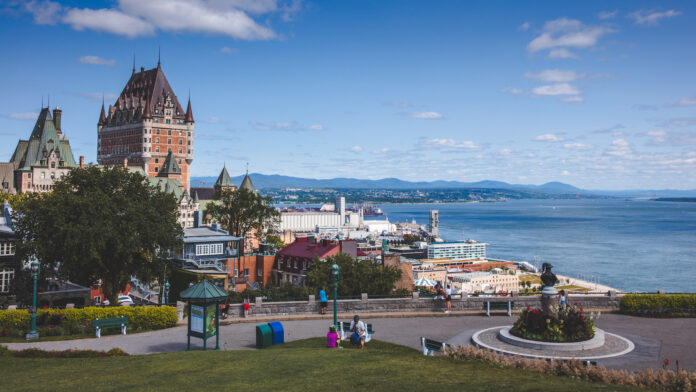
A new provincial outlook report by Mouvement Desjardins economists forecasts that Quebec’s economic growth is likely to fall short of the national average for a second consecutive year in 2023.
This belief stems from observing Quebec’s slide into a “fairly light” recession in the second half of this year, which is a sign of the dwindling provincial economic strength following eight straight Bank of Canada interest-rate hikes from March 2022 to January 2023.
“Things are moving in slow motion,” said senior economist at Desjardins in Lévis, Hélène Bégin. “Economic data is relatively weak. A lot of economic indicators are weaker in Quebec than elsewhere.”
For illustration purposes, the provincial GDP climbed by only 0.9 in the first four months of 2023, which is dwarfed by the 2.3 percent national average.
Residential construction has steadily fallen in Quebec, and there is “only a slight” rebound in the resale market. This is in combination with a fall in provincial business investments and international exports, while the same metrics are holding up on a national scale.
Read More:
Encourage Immigration to Smaller Communities, Canada Governments Told
Candidates Must be Active in Start-up Visa Business or Have Canada Permanent Residence Application Denied
Monthly Arrivals Through Canada’s Parents and Grandparents Program Up 63% in May
The GDP drop of 0.4 percent in April, according to Bégin, is a foreteller of negative growth for the entire second quarter due in part to forest fires, which have unprecedentedly stunted output and exports from the paper and wood industries, among others.
The pattern of a lower GDP growth in comparison to the national average is similar to the one from last year, when Quebec’s real GDP growth of 2.8 percent lagged the 3.4 percent at the Canada-wide level. Moreover, it is further predicted to stretch into early next year.
According to Desjardins economists, the primary reason for Quebec’s economy being negatively affected in the ways described above is the slower population growth when compared to the rest of Canada.
Quebec’s population grew by only 2.1 percent in the year ending in April 2023, which falls short of the 3.1 percent national average. Ontario meanwhile witnessed a population expansion of 3.4 percent over the same time-period.
As per Bégin, interprovincial migrations do not bring in a large workforce, and Quebec also has an older-than-average population when compared to the rest of Canada.
When these factors are combined with the fact that international immigration and immigrant integration in Quebec are weak compared to national rates, it is evident that the labour market has excess demand which is insufficiently met by the current immigration levels.
This resultantly creates less demographic support for the economy.
Watch Video:
The Canadian Federation of Independent Business’ (CFIB) recent study reported that several Quebec regions should expect severe labour shortages in the coming years, unless the government encourages the expansion of provincial immigration targets – especially outside of Montreal.
In March 2023, there was a projected annual shortfall of 18,000 immigrants in Quebec, with Montreal and Laval being the only exceptions to the rule.
However, on June 7th the Quebec government Coalition Avenir outlined a slew of proposed changes in its Official Gazette, that will impose stronger French language requirements across most permanent and temporary immigration programs.
Once implemented, these new requirements will make it harder for Quebec employers to attract top international talent. They will also render Quebec less attractive to foreign nationals as a temporary or permanent settlement choice.
CFIB suggested that luring immigrants away from the immigration hubs could be achieved by reducing paperwork, making housing more affordable, increasing services such as childcare for families, and making financial incentives available for newcomers. A speedier Canada citizenship process for foreign workers who want to settle in Quebec could also be implemented.
However, these observations will unlikely address the more acute issue of the proposed new immigration rules that will likely come into force later this year.

